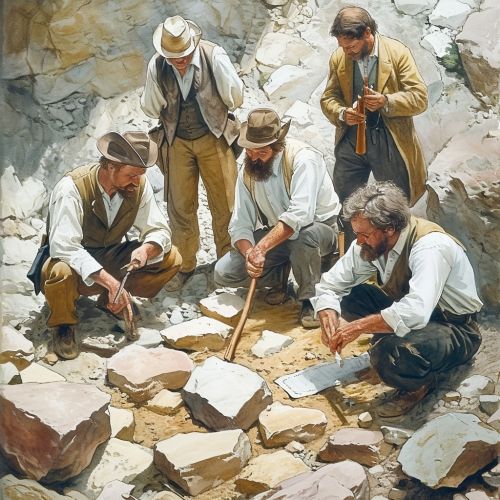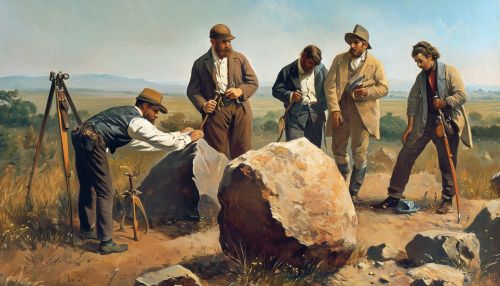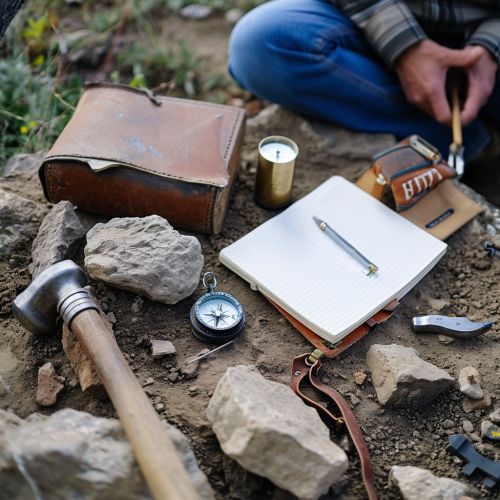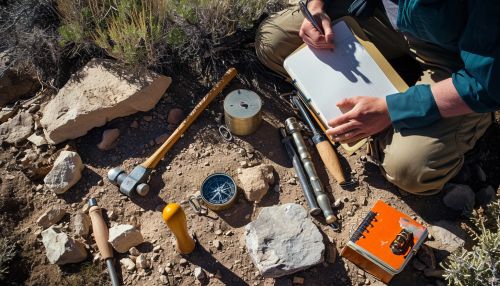Geologists
Introduction
Geology is a scientific discipline that focuses on the study of solid Earth, its rocks, and the processes by which they change over time. Geologists, the scientists who study geology, investigate the Earth's history and the processes that have shaped it over billions of years. This includes studying the Earth's structure, the materials it's composed of, and the processes acting upon them.
History of Geology
The study of geology has a long and storied history. The ancient Greeks were the first to record geological observations, with philosophers such as Thales and Aristotle making significant contributions. However, modern geology didn't truly begin until the 17th and 18th centuries, when scientists like Steno and Hutton laid the groundwork for many of the principles geologists use today.


Branches of Geology
Geology is a broad field with many specialized sub-disciplines. These include:
- Structural geology: This branch focuses on the study of Earth's deformation due to geological forces. It involves the analysis of geological structures like folds, faults, and rock units.
- Sedimentology: This discipline studies the process of sedimentation, including the origin and formation of sedimentary rocks.
- Paleontology: This branch involves the study of ancient life forms through the examination of fossil remains.
- Volcanology: This field focuses on studying volcanoes and volcanic phenomena.
- Seismology: This branch involves the study of earthquakes and the propagation of elastic waves through the Earth.
- Petrology: This field involves the study of rocks, including their composition, classification, and origin.
Geologists' Tools and Techniques
Geologists use a variety of tools and techniques in their work. These include fieldwork, laboratory analysis, and computer modeling. Fieldwork often involves observing, measuring, and collecting samples from the Earth's surface. In the laboratory, geologists use microscopes, spectrometers, and other instruments to analyze these samples. Computer modeling is used to simulate geological processes and interpret data.


The Role of Geologists
Geologists play a crucial role in society. They help locate and manage Earth's natural resources, such as oil, gas, and minerals. They also study natural hazards like earthquakes, volcanic eruptions, and landslides to help predict and mitigate their impacts. Additionally, geologists contribute to our understanding of climate change and other environmental issues.
Geology and Other Sciences
Geology intersects with many other scientific disciplines. For example, it overlaps with physics in the study of seismic waves and magnetic fields, with chemistry in the analysis of rock composition, and with biology in the study of fossils and ancient life forms. This interdisciplinary nature of geology makes it a fascinating and diverse field of study.
Conclusion
Geology is a vital science that helps us understand the Earth and its history. Geologists, through their meticulous work, contribute significantly to our knowledge of the planet and its processes. Their work has practical applications in resource management, hazard mitigation, and environmental conservation, making it a crucial discipline in today's world.
